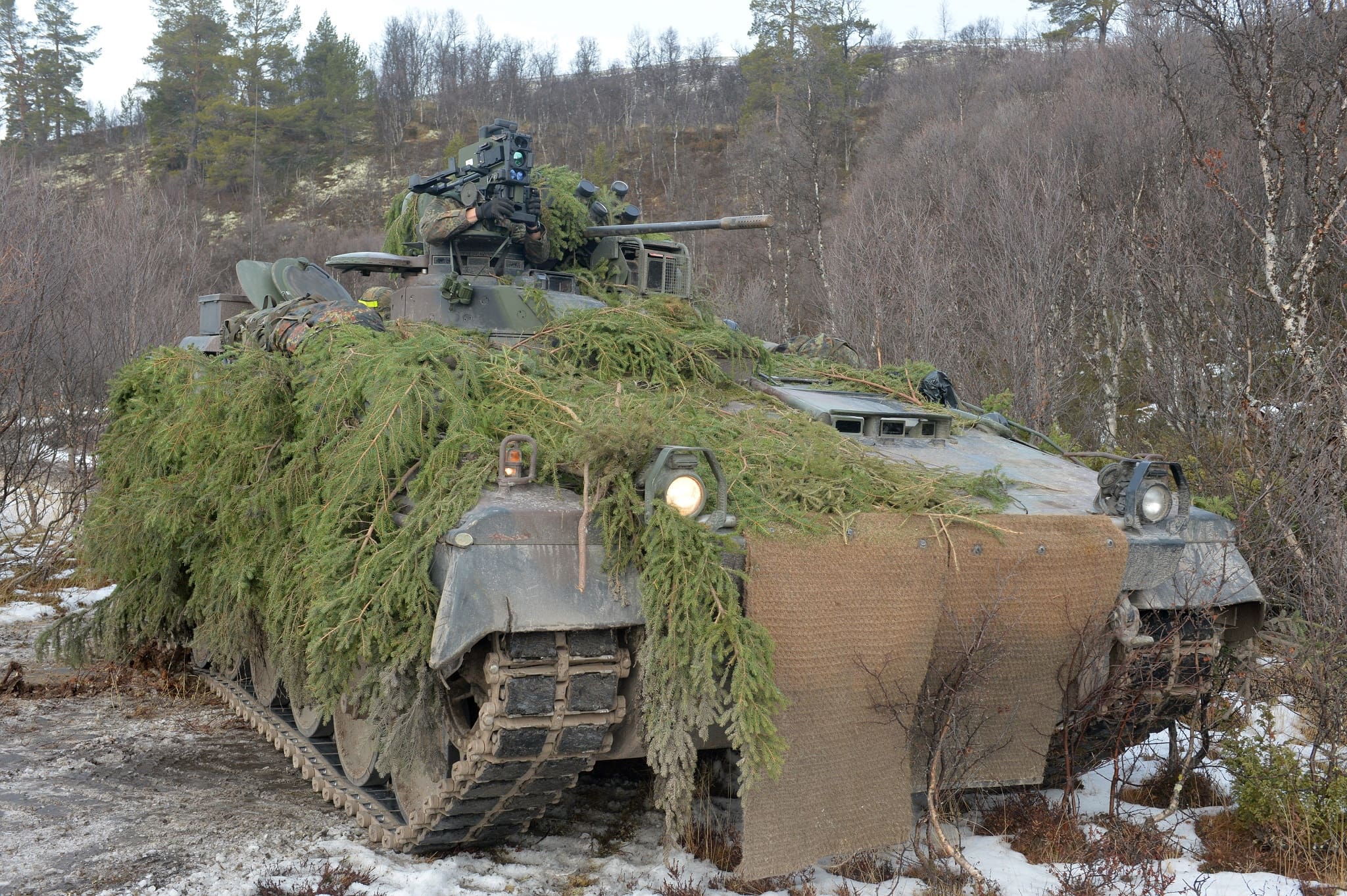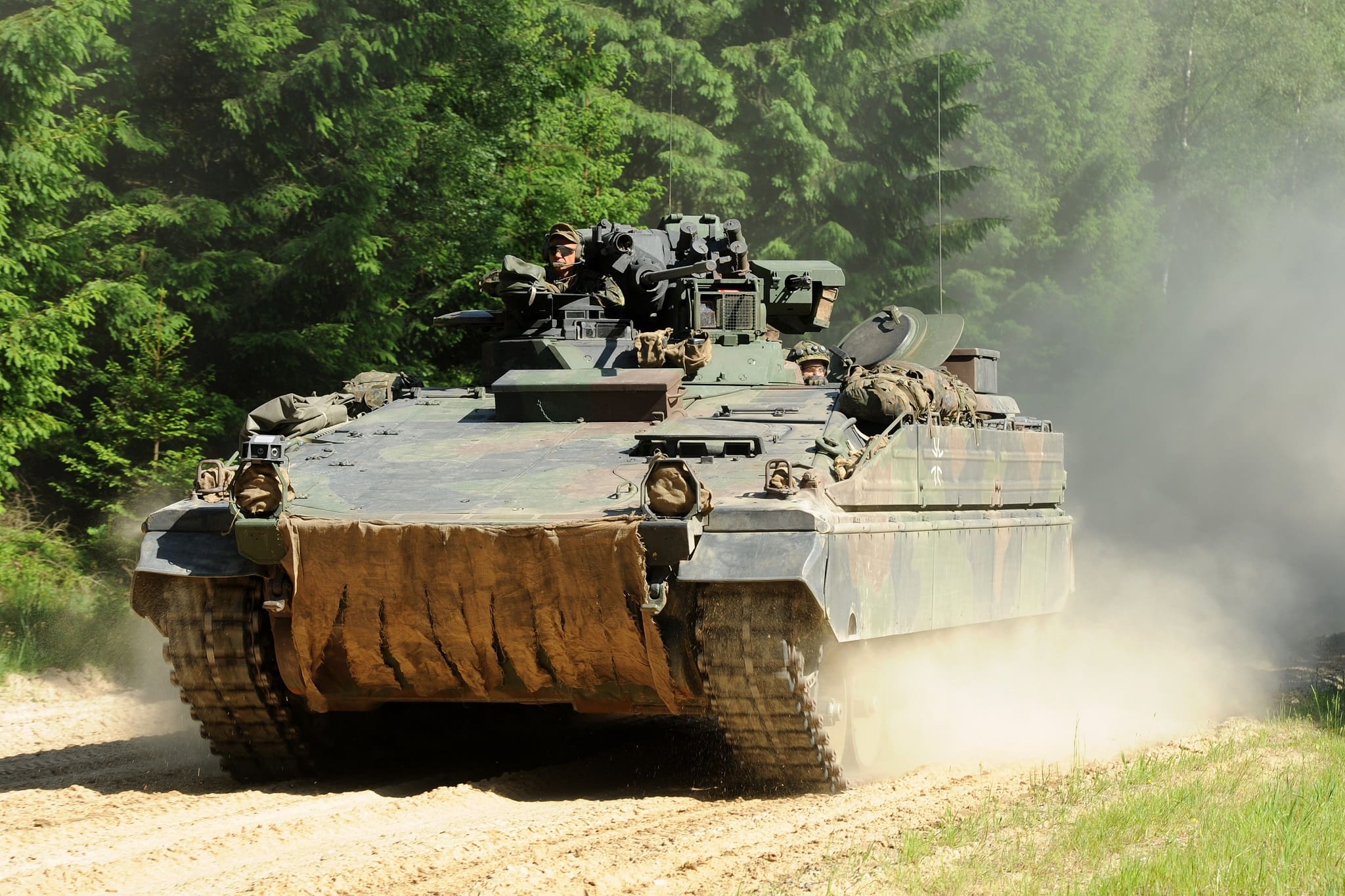The Bundeswehr has contracted with Rheinmetall to carry out new measures for extending the service life of the Marder infantry fighting vehicle. In order to maintain the operational readiness of this tracked vehicle, the drivetrain of 71 Marder 1A5 vehicles will be replaced. During the 2020-2023 timeframe, Rheinmetall will be supplying the German military with a total of 78 conversion kits as well as vehicle tool kits and special tools, logistical support, an initial store of spare parts, and training and instruction. The order is worth around

€110 million, including value added tax. The service life extension will maintain and expand the capabilities of the Marder, which the Bundeswehr first fielded in 1971.
As a first step in replacing the drivetrain, a new powerpack will be installed in all of the vehicles, which will boost the Marder’s engine output from 600 to over 750 HP. The new powerpack will significantly enhance the tried-and-tested vehicle’s responsiveness. Here, the Bundeswehr has opted for a highly advanced, forward-looking new solution proposed by well-known German manufacturers.
Under a comprehensive development contract, the Marder fleet has already undergone significant modernization. For example, the new MELLS multirole lightweight antitank guided missile system has recently been integrated into various versions of the Marder infantry fighting vehicle, while a new driver vision system, a thermal imaging aiming device and a fire detection and extinguisher system have also been ordered. Series contracts have already been awarded for parts of this service life extension, with performance upgrades now reaching the troops.

First and foremost, these service life extension measures are designed to eliminate known obsolescent elements in the Marder. Here, individual measures can be supplied as modular conversion kits and – as part of planned maintenance operations, for example – integrated in order to assure ready availability of the vehicles.
Awarded to Rheinmetall in December 2019, this Bundeswehr order has the potential to lead to more service life extension measures both at home and abroad. Besides Germany, the armed forces of Chile, Indonesia and Jordan all use the Marder infantry fighting vehicle.
As a system developer and supplier, Rheinmetall has immense expertise and experience with the Marder. The weapons system first rolled off the assembly lines of the predecessor of the company now known as Rheinmetall Landsysteme GmbH in Kassel. Extremely reliable and battle tested, the Marder is set to serve as an important asset of Germany’s mechanized infantry units for several more years, even though the Bundeswehr is currently taking delivery of the last of 350 Puma infantry fighting vehicles intended to replace it.


Apparently it has something to do with not building the puma with a big enough crew compartment in the back. The troops are to tall, well that’s what they were talking about in Munster.
The SPz Puma has a lot of problems going back to the requirement to fit inside a A400M aeroplane. Like the aforementioned interior size. Also the mine protection takes up space. But what is worse is, that often all the computers on board crash and you have to reboot them in the middle of the field. Taking a few minutes until it can move again. A really expensive near-failure so far.
Of course the MArder has had its problems and with the most recent A5 improvements it got too heavy for its engine and suspension, but they still move and shoot at least.